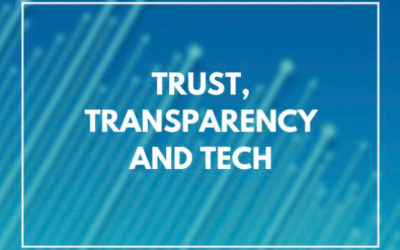Further Reading and Resources:
- Athey, S. (2017) Beyond Prediction: Using Big Data for Policy Problems. Science, 355, 483–485.
- Schrape, J.-F. (2017, May) Open Source Projects as Incubators of Innovation. From Niche Phenomenon to Integral. SOI Discussion Paper 2017-03.
- Baack, S. (2015) Datafication and empowerment: how the open data movement re-articulates notions of democracy, participation, and journalism. Big Data Soc., 2.
- Web Foundation. (2017, May) Open Data Barometer, Global Report Fourth Edition. The World Wide Web Foundation.
- Janssen, M., Konopnicki, D., Snowdon, J.L. and Ojo, A. (2017) Driving public sector innovation using big and open linked data (BOLD). Syst. Front., 19(2), 189–195.
- Safarov, I., Meijer, A. and Grimmelikhuijsen, S. (2017) Utilization of open government data: a systematic literature review of types, conditions, effects and users. Polity, 22, 1–24.
Predictive & Behavioural Analytics
Closely related to Big Data is Behavioural and Predictive analytics. These focus on providing insight into the actions of people through the analysis of large and varied data sets to uncover hidden patterns, and unknown correlations, to help make informed decisions
Behavioural Analytics centres on understanding how consumers act, and why, enabling predictions about how they are likely to act in the future. It allows providers in the private or public sector to make the right responses to the right consumer segments at the right time. Mainstream private sector uses are in eCommerce platforms, online games, web and mobile applications, and the IoT.
Predictive Analytics is the practice of extracting information from historical and real-time data sets to determine patterns and predict future outcomes and trends. Predictive analytics ‘forecasts’ what might happen in the future with an acceptable level of reliability, and includes what-if scenarios and risk-assessment. The defining function is the predictive score (probability) for an agent (individual, vehicle, machine, organisational unit, etc.) to aid with decision making in complex organisational processes. A representative example would be ‘credit scoring’ in financial services that uses customer’s credit history and current data to rank their likelihood of future credit payments on time. These technologies also show significant potential to aid decisions in government operations including law enforcement.
Related Papers and Publications

Algorithmic Government - The Computer Journal
Paper #02
Paper #03
Paper #03

Next GovTechLab Event
Latest News
Trust, Transparency and Tech (Policy Connect)
This item is a reproduction of a news post on Policy Connect’s report titled “Trust, Transparency, Tech on data and Technology Ethics” GovTech Lab’s Dr. Zeynep Engin provided evidence and was cited in this report. The All Party Parliamentary Data Analytics Group...
read moreChallenges in Algorithmic Crime in Finance
In this blog, Henry Ashton presents challenges that Computer Scientists need to address with respect to algorithmic crime in finance. Henry Ashton is a PhD student at the EPSRC Centre for Doctoral Training in financial computing and analytics. His research interests...
read moreMoving Forward with Interdisciplinarity
In this blog, Dr. Jenny Bunn offers her reflections and thoughts following the Digital Ethics Forum meetup. Jenny Bunn leads on the Department of Information Studies’ digital curation teaching. She is the current Chair of the Archives and Records Association Section...
read more



